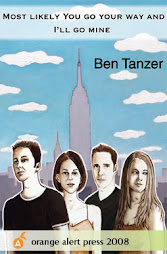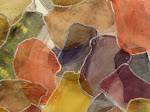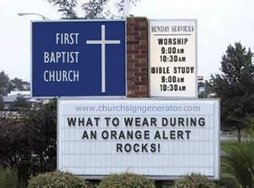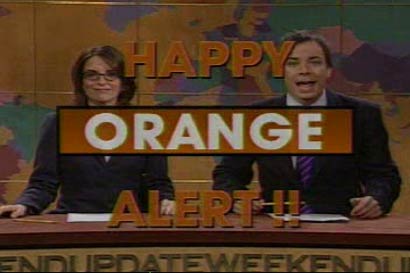 Mark Tardi
Mark TardiChicago writer, Mark Tardi, is an exceptionally diverse voice in the growing Chicago literary scene. He is diverse in style and structure, tastes (Chopin, Neil Diamond, Tokyo Police Club), and experiences. It is the convergence of all these parts that make his work unique and vital to the scene. As a graduate of Brown University, Mark has studied with and learned from many great writers, but it is his own inherent understanding of mathematics and his interest in classical music that have been contributing factors in many of his works. His first book, "Euclid Shudders", was published in 2002 by Litmus Press, and it placed him as a finalist for the 2002 National Poetry Series. He has also released a chapbook through gong publishing entitled "Part First -- Chopin's feet" in August of 2005.
Recently, Mark answered a few of our question on Math, Music, and of course the best team in baseball the Chicago Cubs.
Orange Alert (OA): How would you explain the convergence of math and music in your writing?
Mark Tardi (MT): Math and numbers are things I've always been intuitively comfortable with from a very young age. For as long as I can remember, I've set the minutes portion of my alarm clock to prime numbers: waking up at "6:15" seems unthinkable to me, but "6:17" or "6:19" -- of course. This is to say, math wasn't something I thought about consciously much
-- any more than, say, breathing or walking -- but it was fundamental to me. When I started looking at math more consciously, I started to fixate on the seemingly simple yet profound questions it asks, which in turn led me to Euclidean and non-Euclidean geometry; Kurt Godel's
Incompleteness Theorem; infinite matrices; reading about the Riemann Hypothesis, twin primes . . .
As for music, most of us are enveloped with rhythms and sounds. Growing up near Midway Airport in Chicago, my days were soundtracked by the planes flying overhead or the nearby freight-trains tapping their tracks, and these are incredibly measured sounds. In terms of overlap and convergence, there's a great deal of math in music; and a great deal of music in math. Perhaps math is traditionally perceived as more "intellectual," music more "emotional,"
but in any case, both articulate the hum of the possible in devastatingly elegant and profoundly baffling ways.
OA: Who are you biggest literary influences?
MT: I read a lot of different things, and no question it all seeps in in various ways. But sticking purely to literary figures I admire and have learned from, people like Witold Gombrowicz, Michael Palmer, Emily Dickinson, Euclid, Paul Celan, Carole Maso, David Markson, Thalia
Field, Edmond Jabes, Italo Calvino, Viktor Shklovsky, William Blake, Georges Perec, Virginia Woolf, Nathaniel Mackey, Wallace Stevens, Anne-Marie Albiach, Stefan Themerson, Lisa Jarnot, G.H. Hardy, Craig Watson, Jennifer Moxley, and plenty of others.
MT: I read a lot of different things, and no question it all seeps in in various ways. But sticking purely to literary figures I admire and have learned from, people like Witold Gombrowicz, Michael Palmer, Emily Dickinson, Euclid, Paul Celan, Carole Maso, David Markson, Thalia
Field, Edmond Jabes, Italo Calvino, Viktor Shklovsky, William Blake, Georges Perec, Virginia Woolf, Nathaniel Mackey, Wallace Stevens, Anne-Marie Albiach, Stefan Themerson, Lisa Jarnot, G.H. Hardy, Craig Watson, Jennifer Moxley, and plenty of others.
OA: What is your view on the "Chicago literary scene"? Is there a scene? Is there a defined image of a Chicago writer?
MT: The Chicago literary scene seems to be going through puberty, as best as I can tell. It'll grow up, but it's not there yet. People are too desperate to get the stamp of approval from the East or West Coast, are always looking over their shoulder to see what plays in New York. There has been an influx of writers into the city in the past five years or so, but I often get the impression that Chicago is their weigh-station as they angle for their next teaching post on one of the coasts.
That said, there are some very fine writers here. One of the challenges Chicago has compared with other cities is its sheer geographic size: the city literally sprawls, which isn't the case in
places like New York, San Francisco or Seattle. Density tends to help in the formation of artistic scenes.
As far as a defined image of a Chicago writer, I'm dubious. It does appear that poets like some of the weaker Objectivists get more attention here than elsewhere, but I'm not sure that's a good thing -- depends how watered-down you like your beer I suppose. There are a number of writers clustered in different parts of the city, and the interests and aesthetics are quite varied. To me, that's what's most promising about Chicago.
OA: How has the internet affected you as a writer?
MT: Hmm. It's hard to tell, to be honest. My formation as a writer was roughly parallel to the development of the internet. I don't think the internet informs my writing per se in any active way (like it does for practitioners of Flarf, for example), but I'm sure that the scope and access to information quickly has played a part in all sorts of things. It's easier to find out about artists or track down books, and I'm sure that has helped me in countless ways.
OA: Unlike a lot of writers I've talked to, I've read that you listen to music while you write. Who are some of your favorite musicians and how does their music affect your writing?
MT: Yes, listening to music is critical to my writing process. When working on a manuscript I tend to do two things: key the work to a color (my most recent manuscript is "red" to my eye), and to a sonic/emotional register. It gives me something to revert back to when I'm "stuck," so to speak, keeps me focused. So, for instance, various parts of the manuscript I just finished, Airport music, were composed to Radiohead's Amnesiac; Bach's Goldberg Variations; Chopin's
nocturnes; Neil Diamond; Lionel Richie; Witold Lutoslawski. It's all very inexact and intuitive, but has a lot to do with my emotional temperature. Sometimes I need music that is similar in
emotional register to what I'm feeling; other times I want the opposite effect. There's a certain degree of pessimism or skepticism that bleeds through my work, and so for the sake of balance I'll reach for some Lionel Richie, Tokyo Police Club, Flaming Lips. Other times I'm writing something that I think is bratty or silly while listening to Arvo Part's devastatingly sparse piano pieces.
nocturnes; Neil Diamond; Lionel Richie; Witold Lutoslawski. It's all very inexact and intuitive, but has a lot to do with my emotional temperature. Sometimes I need music that is similar in
emotional register to what I'm feeling; other times I want the opposite effect. There's a certain degree of pessimism or skepticism that bleeds through my work, and so for the sake of balance I'll reach for some Lionel Richie, Tokyo Police Club, Flaming Lips. Other times I'm writing something that I think is bratty or silly while listening to Arvo Part's devastatingly sparse piano pieces.
Bonus Questions:
OA: Total wins for the Cubs this year?
MT: 92
OA: Combined wins for Prior & Wood?
MT: My hunch is that Wood will end up the closer because Dempster doesn't belong in that role. So hopefully Wood doesn't have too many wins. Considering the history with these guys, I'll be uncharacteristically optimistic. Let's say 19.
OA: Will the Cubs be in the World Series? Yes or No
MT: Ever? Yes. This year? -- why not? Yes.
OA: Santo Hall of Fame? Yes or No
MT: Sentimentally, yes. But with the snobby myopic Veteran's Committee the way it is currently configured, he won't get elected. (Joe Morgan has gone on record saying he didn't think Ryne Sandberg belonged in the HOF!) Had Santo played for the Yankees, he would have been in a long time ago. Or do something against the Yankees then you're a god; anywhere else, good luck.
OA: Coffee? Yes or No, If yes, favorite place and drink?
MT: Oh yes. My favorite place is this small cafe in Krakow, Poland on ul. Tomasza. In Chicago I like Julius Meinl, Uncommon Ground and Intelligentsia. And a regular ol' espresso or French press coffee usually hits the spot.
OA: What's next for Mark Tardi?
MT: As for what's next for me, I have work coming out in an anthology called The City Visible: Chicago Poetry for the New Century, forthcoming next month by Cracked Slab Books. And I have a reading at St. Mark's Poetry Project in New York on April 16th.
For more on Mark and his work you can visit Litmus Press or check out the interview he did with Chicago Postmodern Poetry.
+by+Nick+Volkert).jpg)





















No comments:
Post a Comment